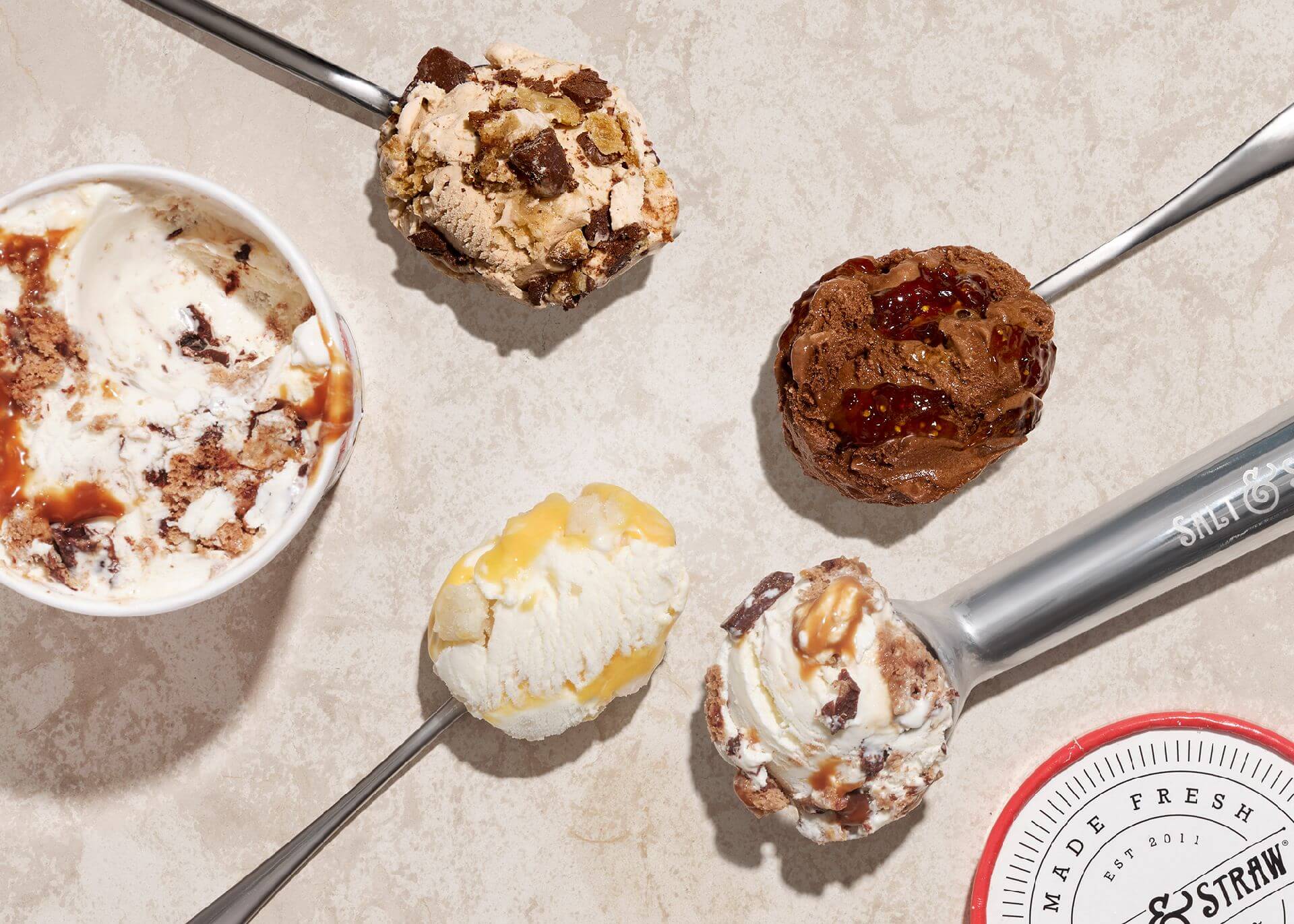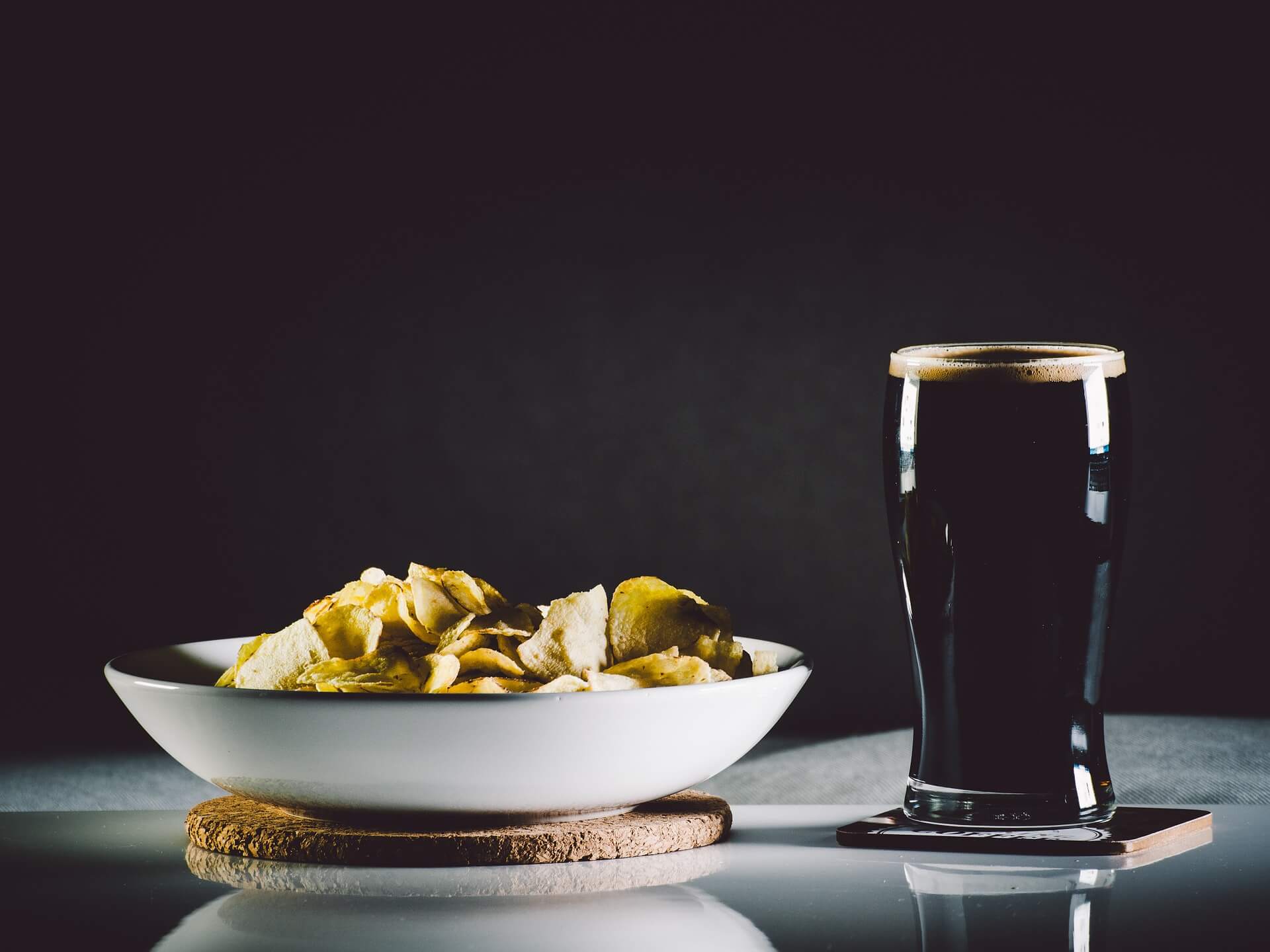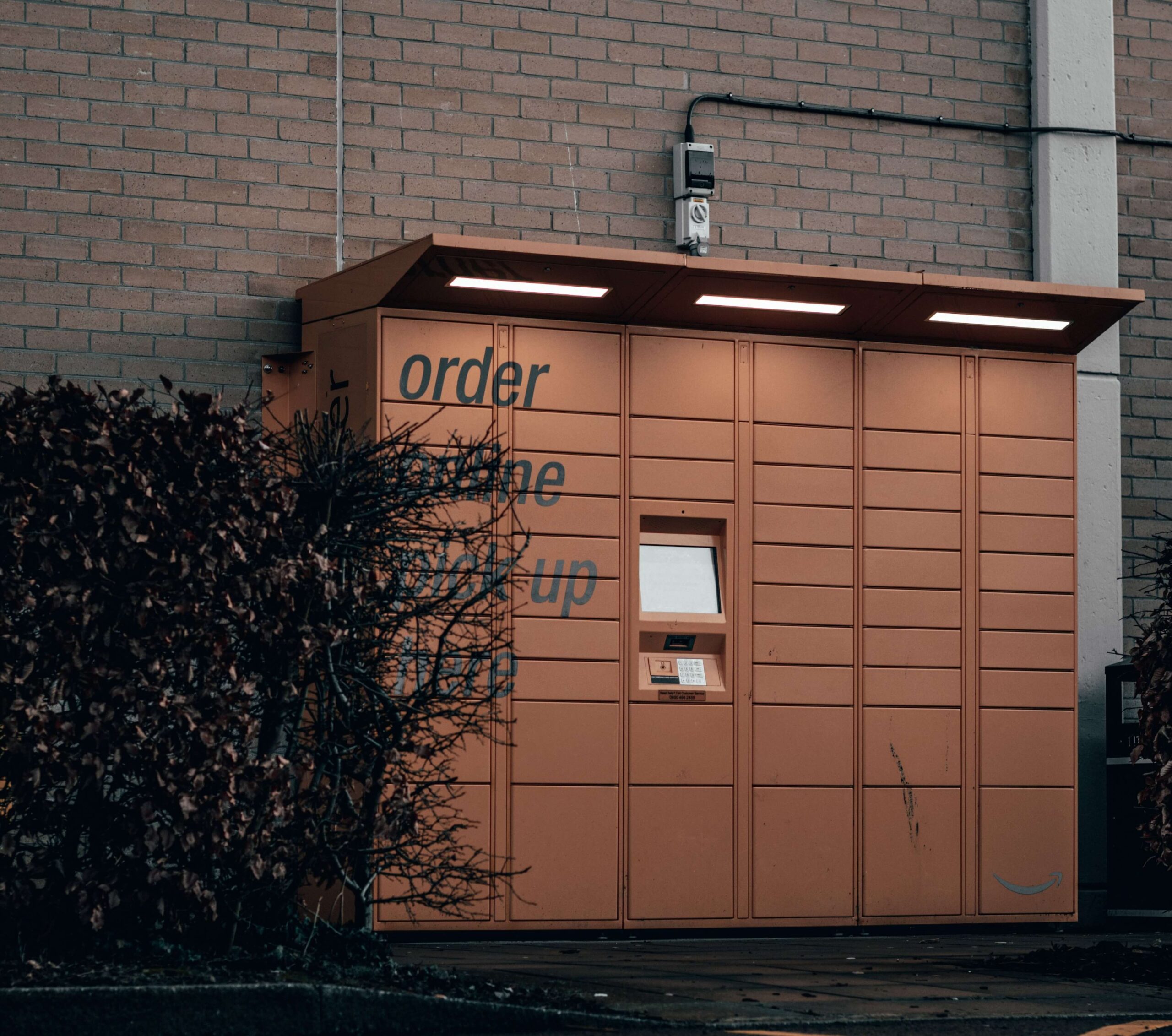Salt & Straw’s Upcycled Foods Series Returns
by David Klemt

To celebrate this year’s Earth Month, innovative small-batch ice cream shop concept Salt & Straw is bringing back their Upcycled Food Series.
Last Friday, three returning flavors and two new creations hit Salt & Straw locations in five US states. Currently, the artisanal ice cream shop chain operates in California, Florida, Oregon (the brand’s home state), Nevada, and Washington.
Among other important operational elements, Salt & Straw is known for innovative, chef-driven flavors. This is, in part, due to the concept’s commitment to ensuring at least 20 percent of the menu is dairy-free and vegan-friendly.
However, the brand also shines a spotlight on sustainability and combating restaurant food waste. In 2023, Salt & Straw launched their first Upcycled Food Series. A key element of the LTO menu’s execution is collaboration. Specifically, collaborating with partners that focus on upcycling ingredients.
For example, the bananas Salt & Straw uses to craft one of this year’s brand-new flavors come from Urban Gleaners. That non-profit rescued bananas from grocery stores and restaurants before they were tossed out.
After doing some digging, I found that it’s believed about 40 percent of the entire food supply in the US goes to waste per year. That’s 60 to 80 million tons of food, wasted. Supposedly, 60 percent of the food supply goes to waste in Canada.
So, I think it’s admirable that Salt & Straw leverages Earth Month to expose the alarming issue of food waste. More importantly, the brand shows that a little creativity can go a long way to fight this serious problem.
2024 Upcycled Food Series Flavors
Returning Creations
Three flavors are back for the 2024 Upcycled Food Series.
- Day-Old Bread Pudding & Chocolate Ganache: Urban Gleaners partners with Salt & Straw on this flavor, collecting bread throughout Portland, Oregon, before it’s thrown out or otherwise goes to waste. The result is an enticing layering of custard bread pudding ice cream and chocolate ganache, as the name implies.
- Malted Chocolate Barley Milk: In collaboration with Evergrain, a business focusing on sustainable ingredients, this vegan option is produced in part using the spent grains from the beer-brewing process. Malted Chocolate Barley milk is a “malty, fudgy, ooey-gooey vegan dream. This flavor takes us behind the curtain into beer brewing and answers the question: What happens to the spent grains after they brew beer? The brilliant food scientists at EverGrain are revolutionizing ways to extract the immense nutrients left in the grain and using it in our everyday foods, like protein-packed barley milk. We churned this barley milk with cocoa, making for a dense and creamy textured chocolate base before drizzling in a homemade fig fudge that make those rich, jammy flavors pop.”
- Salted Caramel & Chocolate Brownies: This returning flavor is also vegan and a collaboration with an upcycled food company called Renewal Mill. As described by Salt & Straw on their website: “Behold the ultimate trifecta of salty, sweet, and bitter thanks to our friends at Renewal Mill. Their chef-crafted baking mixes are made with okara—a delicate soy flour upcycled from plant-based milk production. We fell in love with their unbelievably moist and chewy chocolate brownies, baking them in our kitchen before generously frosting them with a rich caramel. These delectable treats are folded into a sweet bed of oat milk for a vegan flavor you have to taste to believe.”
New Creations
There are two brand-new flavors on the Upcyled Food Series menu for this year’s Earth Month.
- Chocolate Caramel Potato Chip Banana Bread: Of all the flavors, this is the one I’m most eager to try. Salt & Straw expands their partnership with Urban Gleaners for this creation, this time tasking them with saving bananas. However, a second partner helps out to make this flavor possible. Uglies provides the potato chips, which are produced using “imperfect” potatoes. To craft this one, Salt & Straw roasts “bunches and bunches of bananas in honey and spices to make a jammy banana bread ice cream you simply can’t resist. Next, we coat “Uglies” potato chips made from potatoes with slight imperfections in the most beautiful chocolate possible and drizzle in a perfect ribbon of handmade caramel.”
- Passionfruit Yuzu Mochi Donuts & Whey Curd: To create this flavor, Salt & Straw takes frozen yogurt and enhances it with The Spare Food Co.’s upcycled whey base. I expect powerful but pleasant tanginess on the palate from this flavor based on the website description: “Bright, acidic flavors with a decidedly delicious twist. Our friends at The Spare Food Co. are concocting drinks of liquid gold by working with Greek yogurt makers around the country and turning their whey, a typically overlooked by-product of yogurt making, into a super-drink. We lean into the yogurt whey’s natural pop of acidity and the unique flavor of their sparkling tonic by making a whey-infused frozen yogurt with a passionfruit-spiked lemon curd, and then fold in homemade butter mochi donuts glazed in yuzu frosting. This flavor sings on your tastebuds and makes you think of new wheys to use traditionally wasted products.”
Images: Salt & Straw



